Politics in Estonia takes place in a framework of a parliamentary representative democratic republic, whereby the Prime Minister of Estonia is the head of government, and of a multi-party system. Legislative power is vested in the Estonian parliament. Executive power is exercised by the government, which is led by the prime minister. The judiciary is independent of the executive and the legislature. Estonia is a member of the United Nations, the European Union, and NATO.

The President of the Republic of Bulgaria is the head of state of Bulgaria and the commander-in-chief of the Bulgarian Army. The official residence of the president is at Boyana Residence, Sofia. After the completion of the second round of voting, candidate Rumen Radev was elected President of Bulgaria on 13 November 2016.

The prime minister of Bangladesh, officially prime minister of the People's Republic of Bangladesh is the chief executive of the government of Bangladesh. The prime minister and the cabinet are collectively accountable for their policies and actions to the Parliament, to their political party and ultimately to the electorate. The prime minister is ceremonially appointed by the president of Bangladesh.
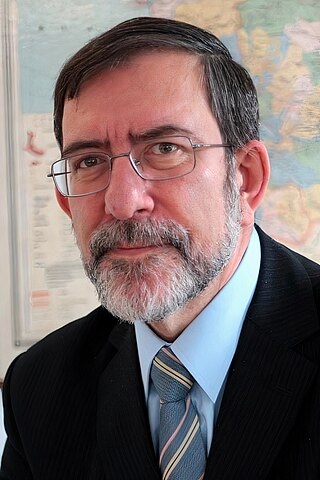
Philip Dimitrov Dimitrov is a Bulgarian politician, Prime Minister of Bulgaria 1991 – 1992, MP in the 36th, 37th and the 40th National Assembly, and MEP from January 2007 to May 2007.

The Government of Pakistan, constitutionally known as the Federal Government, commonly known as the Centre, is the national authority of the Islamic Republic of Pakistan, a federal parliamentary republic consisting of four provinces, two autonomous territories and one federal territory.

The University of National and World Economy is a public research university in Sofia, Bulgaria.
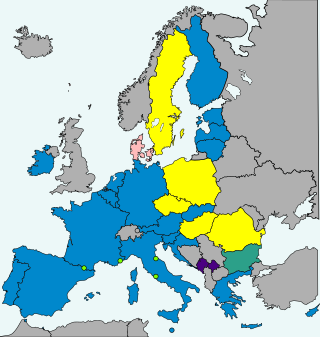
Bulgaria plans to adopt the euro and become the 21st member state of the eurozone. The Bulgarian lev has been on the currency board since 1997 through a fixed exchange rate of the lev against the Deutsche Mark and the euro. Bulgaria's target date for introduction of the euro is 1 January 2025, which would make the euro only the second national currency of the country since the lev was introduced over 140 years ago. The official exchange rate is 1.95583 lev for 1 euro.

The Constitution of the Republic of Bulgaria is the supreme and basic law of the Republic of Bulgaria. The current constitution was adopted on 12 July 1991 by the 7th Grand National Assembly of Bulgaria, and defines the country as a unitary parliamentary republic. It has been amended five times.
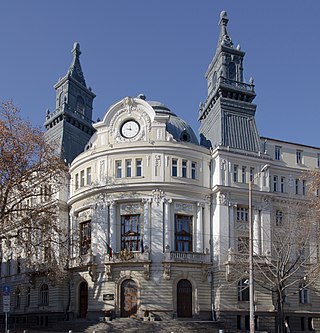
The name of the ministry was changed in 2022 by the Ministry of Agriculture, Food and Forestry to the Ministry of Agriculture.

The enlargement of the eurozone is an ongoing process within the European Union (EU). All member states of the European Union, except Denmark which negotiated an opt-out from the provisions, are obliged to adopt the euro as their sole currency once they meet the criteria, which include: complying with the debt and deficit criteria outlined by the Stability and Growth Pact, keeping inflation and long-term governmental interest rates below certain reference values, stabilising their currency's exchange rate versus the euro by participating in the European Exchange Rate Mechanism, and ensuring that their national laws comply with the ECB statute, ESCB statute and articles 130+131 of the Treaty on the Functioning of the European Union. The obligation for EU member states to adopt the euro was first outlined by article 109.1j of the Maastricht Treaty of 1992, which became binding on all new member states by the terms of their treaties of accession.

The Zhivkov Constitution was the third Constitution of Bulgaria, and the second of the Communist era. It was in effect from May 18, 1971 to July 12, 1991.

The Dimitrov Constitution was the second Constitution of Bulgaria, in effect from 1947 to 1971. It formed the legal basis for Communist rule in Bulgaria.
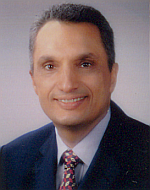
Ivan Yordanov Kostov was the 47th Prime Minister of Bulgaria in office from May 1997 to July 2001 and leader of the Union of Democratic Forces (UDF) between December 1994 and July 2001.

The eighty-seventh cabinet of Bulgaria ruled from May 21, 1997 to July 24, 2001. The government was formed by the United Democratic Forces, an electoral alliance led by the Union of Democratic Forces, after they won a landslide victory in the 1997 parliamentary election winning 49.15% of the votes and 137 seats in the National Assembly. The cabinet was chaired by the UDF leader Ivan Kostov who shared the cabinet posts between his party and his allies. This was the largest margin of victory since the end of communism in 1990, to this day. Kostov's government was the first since 1990 to serve its entire four-year mandate.

The Chairman (President) of the Republic of the People's Republic of Bulgaria was the head of state of Bulgaria from 3 April 1990 to 22 January 1992. The office was known as the Chairman (President) of the People's Republic of Bulgaria until the word "People's" was dropped from the country's name on 15 November 1990. From that point on, the office was simply the Chairman (President) of the Republic of Bulgaria.
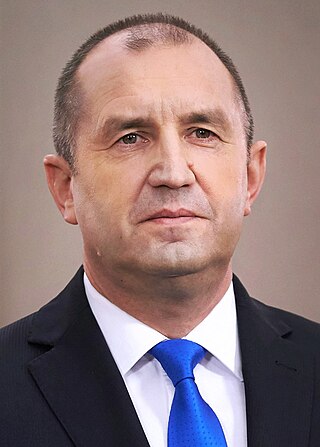
Rumen Georgiev Radev is a Bulgarian politician and former major general who has been the president of Bulgaria since 22 January 2017.
A rotation government or alternation government is one of the ways of forming of a government in a parliamentary state. It is a government that, during its term, will see the individual holding the post of prime minister switch, whether within the same political bloc or as part of a grand coalition. Israel has seen by far the most experience with such a governing arrangement. The governments of Ireland and Bulgaria are now in their first rotation agreement. Usually, this alternation is guided by constitutional convention with tactical resignation of the first officeholder to allow the second to form a new government. Israel, which established the rotation mechanism in 1984, codified it in 2020.

Parliamentary elections will be held in Bulgaria on 9 June 2024, to elect members of the National Assembly. The election coincides with the European Parliament election on the same day. This Bulgarian parliamentary election was initially scheduled to be held before 12 June 2027; however, as formation and approval of the rotation government scheduled to replace the Denkov Government failed on 20 March 2024, the Bulgarian President, Rumen Radev, announced after having concluded a further second and third failed attempt to form a government among the elected parties, that he would now appoint a new caretaker Prime Minister and caretaker government tasked to organize a new snap election. The 49th Parliament, will stay in session until the next upcoming election day.

The Denkov Government is the 102nd cabinet of Bulgaria. It was approved by the parliament on 6 June 2023, and is a majority coalition of GERB and PP–DB. Per the coalition agreement, it is set to be a rotation government, where PP–DB's Nikolai Denkov would start with the premiership, with GERB's Mariya Gabriel serving as Deputy Prime Minister, and after nine months, the two would switch positions. Per the agreement, Denkov and his cabinet resigned on 6 March 2024 in preparation for Gabriel to form her cabinet, although the Denkov government will stay on in a caretaker capacity until a new cabinet is formed.
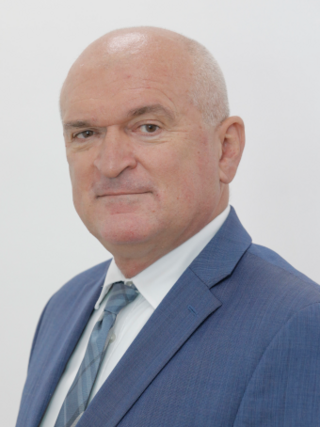
Dimitar Borisov Glavchev is a Bulgarian politician who was selected caretaker Prime Minister of Bulgaria, with the announcement of his selection on March 29. He was also appointed as head of the Chamber of Audit in July 2023. Previously, Glavchev has served as a Member of the Bulgarian National Assembly, as well as its chairman in 2017. Professionally, he is an accountant and economist.
















